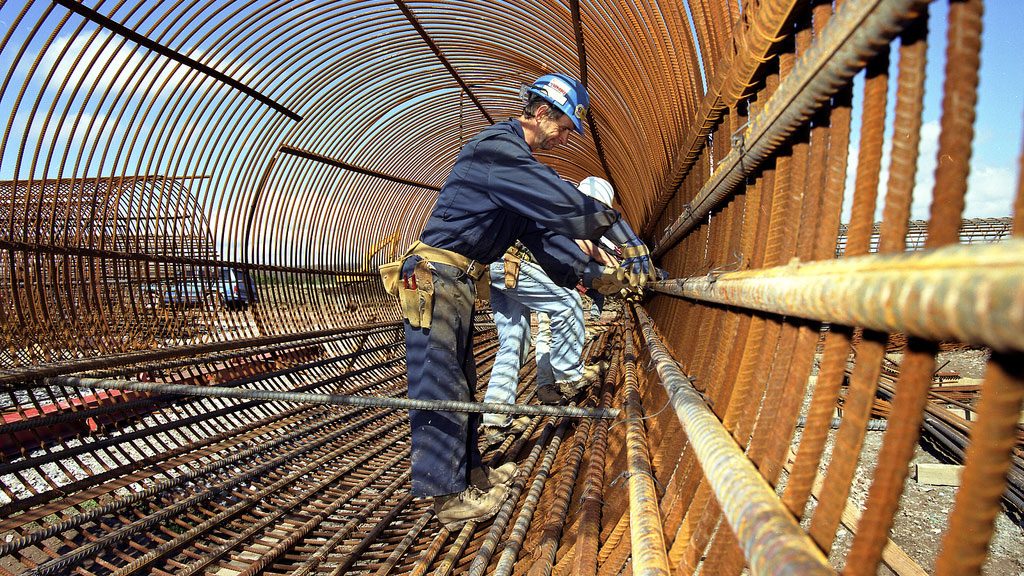A new Temporary Public Policy for Out-of-Status Construction Workers in the Greater Toronto Area (GTA) will provide 500 construction workers who meet certain eligibility requirements an opportunity to obtain permanent resident status.
Out-of-status workers are those who have come to Canada with a valid temporary residence status but have fallen out of status for various reasons. The purpose of the program is to put in place a mechanism for the Canadian Labour Congress (CLC) and the Government of Canada, through Immigration, Refugees and Citizenship Canada (IRCC), “to work together in the identification and referral for processing of applications for permanent residence in Canada of up to 500 undocumented construction workers in the GTA,” states the IRCC website.
The immediate family of the workers would also become eligible for the permanent status.
“There has been an acknowledgement for a long time, along with our affiliates in the building trades in Ontario, that there are a number of people who have been working in the industry who contribute enormously to the industry… They came to the country legally and they remain here and they’re working but unfortunately they don’t have permanent resident status,” said Hassan Yussuff, president of the CLC. “It would be good to find a way to figure out how to get them status.”
Many of these workers have found employment in the skilled trades and construction sector but because they are undocumented and fear they could be deported, they are driven underground, which means they don’t have access to employment rights, Yusseff explained.
This will benefit the industry but also benefit the economy and the country,
— Hassan Yussuff
Canadian Labour Congress
“If they meet the criteria and have their legal documentation, it takes the uncertainty of them worrying and looking over their shoulder every day wondering whether or not they could be deported out of the country at any moment for not having legal status,” said Yusseff. “If you are here and meet this criteria, having your status resolved is a wonderful way to build even stronger roots in Canada, strengthen your relationship with your country but equally to commit to the rights we all benefit from.”
According to the IRCC website, delegated officers may grant foreign nationals permanent resident status provided they meet eligibility requirements including:
- either legally entered Canada as a temporary resident and previously received authorization to work in the construction industry and provide proof of filing Canadian income tax returns — or declaring income in Canada — or legally entered Canada as a temporary resident;
- have continuously resided in Canada for at least five years on the date of their application;
- are currently working without authorization in the construction industry in the GTA and are able to provide evidence of three years of full-time work experience within the past five years in the industry;
- provide evidence of Canadian language ability;
- have a family member living in Canada who is a Canadian citizen or permanent resident;
- have a referral letter signed by the CLC attesting the applicant to be eligible under the public policy; and
- the foreign national (and family members) are not inadmissible other than pursuant to certain sections of the Act and for no other reasons than overstaying their temporary resident status and working without authorization.
If a delegated officer assesses the application and the conditions are met, it will result in approval in principle. A final assessment of admissibility will be conducted prior to granting permanent residence.
“We would work with them to submit an application for the department to consider and if it meets the department approval then they will be in a transition mode while their application is processed for them to get permanent resident status,” said Yusseff. “We are not dealing with immigration lawyers on these issues, it has to be individuals themselves. If they choose to apply they have to do so on their own and not through some surrogate organization or individual representing their interests.”
The initiative will also help deal with the skills shortage in the industry.
“We have shortages in the industry so this will benefit the industry but also benefit the economy and the country as a whole,” said Yusseff. “If we can find a way to help these individuals resolve their status it would be good for our country but even greater for the individual.”
The new policy takes effect Jan. 2, 2020 and will end on Jan. 1, 2022 or once 500 applicants plus their family members have been granted permanent residence. Up to 100 of the 500 spaces will be allotted to those who entered Canada as a temporary resident but never had authorization to work in Canada.
The CLC will open up the process for identifying candidates to be referred to IRCC at the beginning of September. An application form will be posted on the CLC website when the application process opens, however, IRCC will only begin accepting applications on Jan. 2.
The CLC will only refer applications to IRCC determined to be eligible under the policy — having met all of the criteria. The CLC has engaged an immigration lawyer and support staff for the matter.
“The CLC will be engaging at the highest level of due diligence to ensure the safety and security of any applicants who come forward to take part in this initiative,” states a CLC release.
Follow Angela Gismondi on Twitter @DCN_Angela.











Ok, I’ll say it. After months on a project with lots of these recents, quality sucks, communication non existent and end result worthless.
Jug heads in official positions don’t realize how ineffective these newcomers are. Sorry, but quality sucks.
If a tradesperson did this kind of work in these bureaucrats’ homes, they would not be paid and a lawsuit would result.
So stop force feeding agriculture pickers into respectable construction trades.